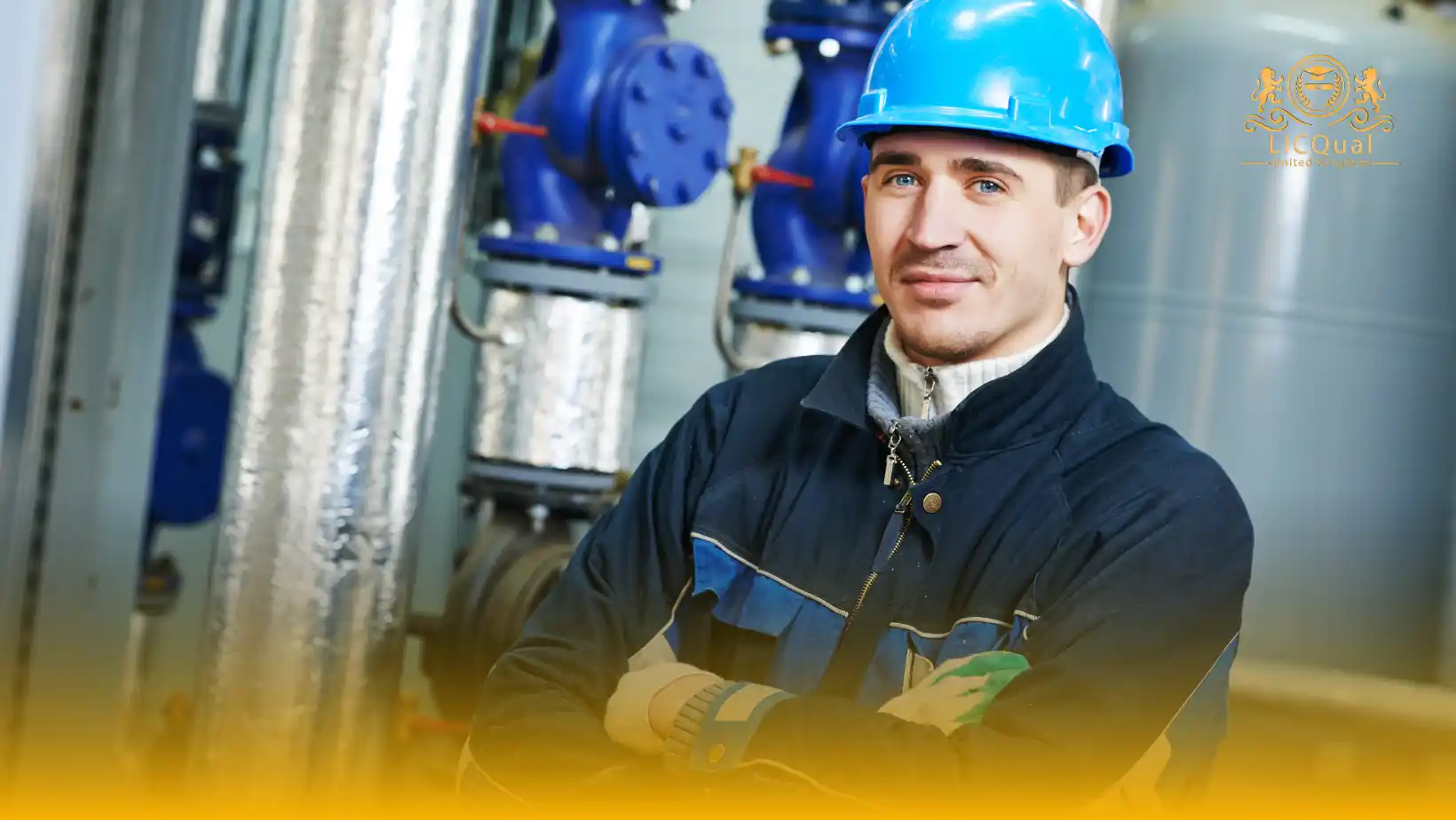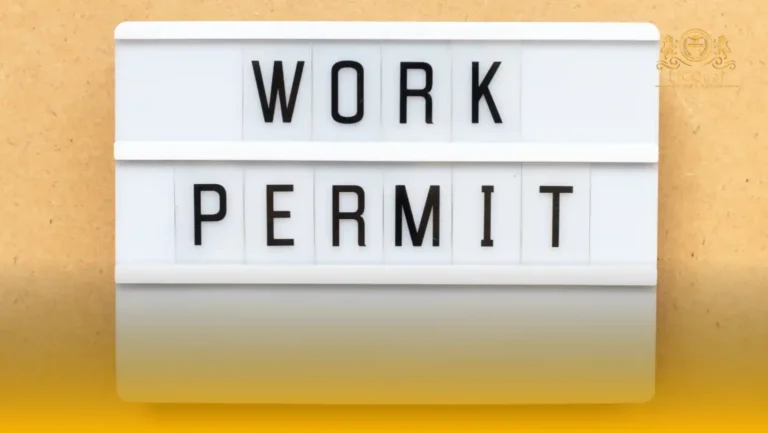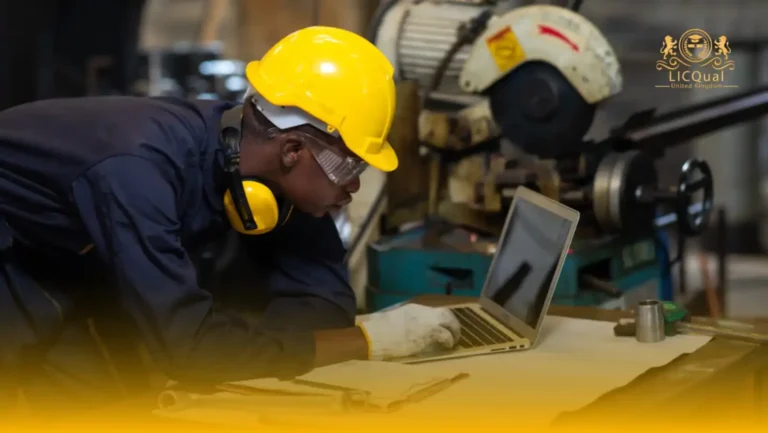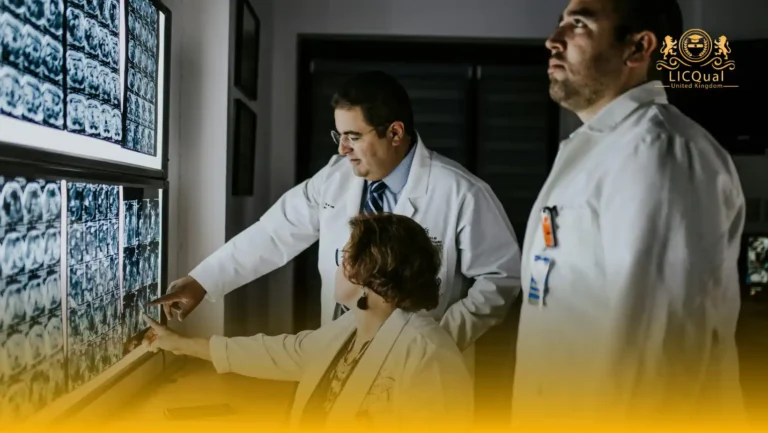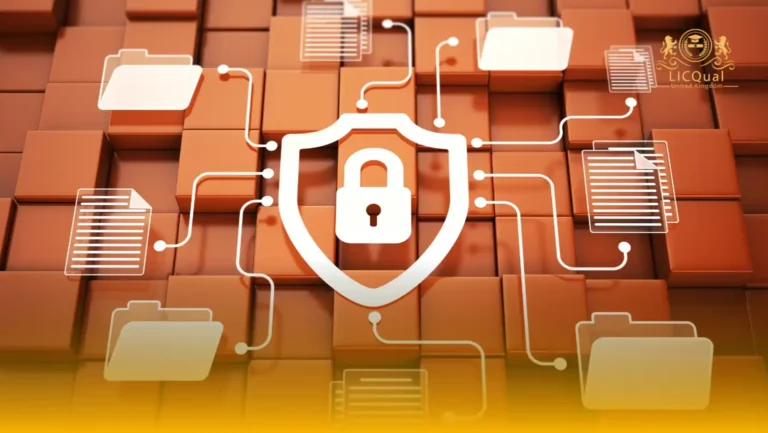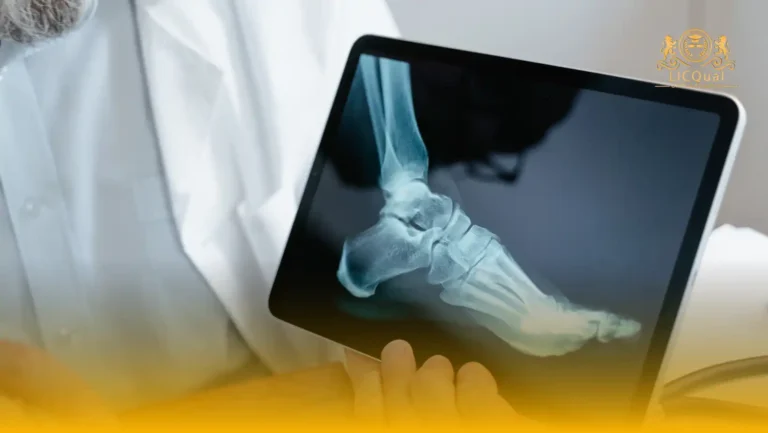The LICQual Level 3 Diploma in Quality Assurance / Quality Control (QA/QC) and Piping Engineering is a globally recognized qualification designed to equip professionals with in-depth knowledge and practical skills required for QA/QC processes and piping systems in industrial and engineering sectors. This comprehensive program provides a strong foundation in international codes and standards, welding inspection, non-destructive testing (NDT), and QA/QC documentation, making it ideal for individuals aiming to build or enhance a career in construction, oil & gas, petrochemical, and mechanical industries.
This diploma blends theoretical knowledge with real-world applications, helping learners understand critical quality control procedures, piping materials, fabrication techniques, and inspection protocols essential for ensuring safety and compliance in engineering projects. Students will gain hands-on insight into welding processes, visual inspection methods, and industry-specific reporting practices, preparing them for immediate field deployment.
Whether you are an aspiring QA/QC inspector, site engineer, piping professional, or technician, this course enhances your technical competencies and boosts your employability in local and international job markets.
Ideal for both beginners and mid-level professionals, the LICQual Level 3 Diploma in QA/QC and Piping Engineering meets the growing demand for certified QA/QC experts who can maintain quality standards in line with global benchmarks.
Course Overview
Qualification Title
LICQual Level 3 Diploma in Quality Assurance / Quality Control (QA/QC) and Piping Engineering
Total Units
6
Total Credits
60
GLH
240
Qualification #
LICQ2200550
Qualification Specification
To enroll in the LICQual Level 3 Diploma in Quality Assurance / Quality Control (QA/QC) and Piping Engineering applicants must meet the following criteria:
|
Qualification# |
Unit Title |
Credits |
GLH |
|---|---|---|---|
|
LICQ2200550-1 |
Introduction to QA/QC and Piping Engineering |
10 |
40 |
|
LICQ2200550-2 |
Piping Materials, Components, and Fabrication |
10 |
40 |
|
LICQ2200550-3 |
International Codes and Standards in QA/QC and Piping |
10 |
40 |
|
LICQ2200550-4 |
Welding Processes and Visual Inspection Techniques |
10 |
40 |
|
LICQ2200550-5 |
Non-Destructive Testing (NDT) Methods |
10 |
40 |
|
LICQ2200550-6 |
QA/QC Documentation and Reporting |
10 |
20 |
By the end of this course, applicants will be able to:
1: Introduction to QA/QC and Piping Engineering
Learning Outcomes:
By the end of this unit, learners will be able to:
- Define the fundamental concepts of Quality Assurance and Quality Control.
- Describe the roles and responsibilities of QA/QC professionals in engineering projects.
- Identify the basic components and functions of piping systems.
- Explain the significance of quality control in project success and regulatory compliance.
- Recognize career pathways within the QA/QC and piping engineering field.
2: Piping Materials, Components, and Fabrication
Learning Outcomes:
By the end of this unit, learners will be able to:
- Identify various piping materials and their industrial applications.
- Describe the functions of valves, fittings, flanges, gaskets, and other components.
- Understand fabrication processes such as cutting, welding, and assembling.
- Interpret basic isometric drawings and fabrication shop practices.
- Ensure compliance with specifications during piping fabrication.
3: International Codes and Standards in QA/QC and Piping
Learning Outcomes:
By the end of this unit, learners will be able to:
- Identify and explain the purpose of international standards such as ASME, ASTM, API, and ISO.
- Apply relevant codes to inspection, fabrication, and testing procedures.
- Evaluate engineering documentation against quality standards.
- Recognize the role of regulatory compliance in global projects.
- Use codes to support decision-making in quality control operations.
4: Welding Processes and Visual Inspection Techniques
Learning Outcomes:
By the end of this unit, learners will be able to:
- Explain key welding methods including SMAW, GTAW, GMAW, and FCAW.
- Identify welding defects and interpret welding symbols on drawings.
- Perform basic visual inspection of welds using standard procedures.
- Understand the content and purpose of WPS and WPQ documentation.
- Ensure welding work meets quality and safety requirements.
5: Non-Destructive Testing (NDT) Methods
Learning Outcomes:
By the end of this unit, learners will be able to:
- Describe the principles of common NDT methods: UT, RT, PT, MT, and VT.
- Select appropriate NDT techniques based on material and defect type.
- Interpret NDT results and identify common types of flaws.
- Follow safety practices during NDT inspection procedures.
- Understand the limitations and advantages of each NDT method.
6: QA/QC Documentation and Reporting
Learning Outcomes:
By the end of this unit, learners will be able to:
- Prepare inspection reports, checklists, and ITPs in line with project requirements.
- Maintain traceability records for materials and welds.
- Identify and report non-conformities effectively.
- Support quality audits through accurate documentation.
- Demonstrate professional QA/QC communication and reporting skills.
The LICQual Level 3 Diploma in Quality Assurance / Quality Control (QA/QC) and Piping Engineering is ideal for individuals who aspire to build or advance a career in the fields of quality control, inspection, and piping systems across various engineering and industrial sectors.
This course is suitable for:
- Fresh graduates from technical, mechanical, or engineering backgrounds who wish to enter the QA/QC or piping engineering industry.
- Working professionals seeking to enhance their qualifications and gain internationally recognized certification in QA/QC practices and standards.
- Technicians and supervisors involved in welding, fabrication, piping, or construction who want to strengthen their skills in inspection, quality management, and compliance.
- Engineers and site inspectors who want to broaden their knowledge of international codes, welding inspection, and non-destructive testing (NDT) techniques.
- Career switchers with relevant technical experience aiming to move into quality assurance, quality control, or piping inspection roles in oil & gas, petrochemical, power plants, or infrastructure projects.
Whether you’re just starting your journey or already working in the field, this diploma provides the essential skills and knowledge to succeed in QA/QC and piping engineering globally.
Assessment and Verification
All units within this qualification are subject to internal assessment by the approved centre and external verification by LICQual. The qualification follows a criterion-referenced assessment approach, ensuring that learners meet all specified learning outcomes.
To achieve a ‘Pass’ in any unit, learners must provide valid, sufficient, and authentic evidence demonstrating their attainment of all learning outcomes and compliance with the prescribed assessment criteria. The Assessor is responsible for evaluating the evidence and determining whether the learner has successfully met the required standards.
Assessors must maintain a clear and comprehensive audit trail, documenting the basis for their assessment decisions to ensure transparency, consistency, and compliance with quality assurance requirements.

